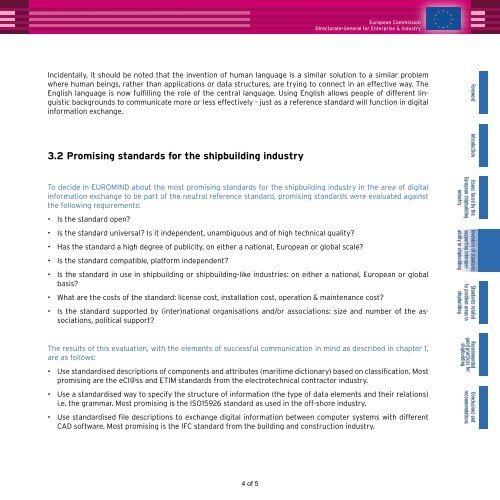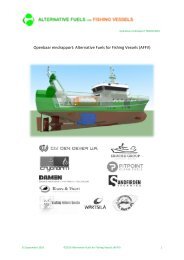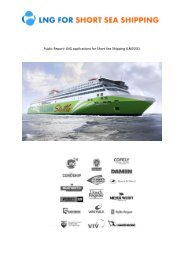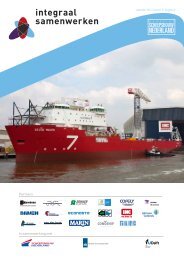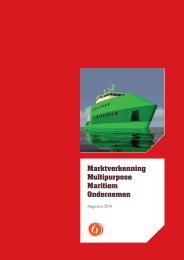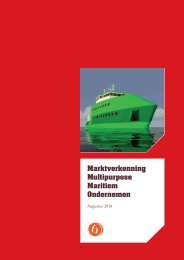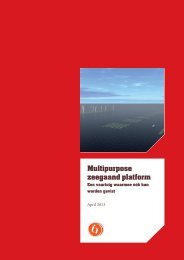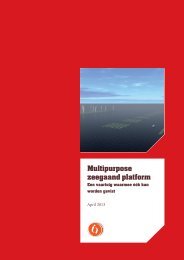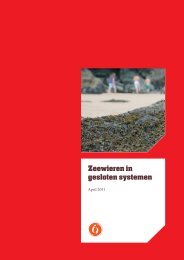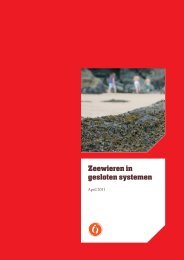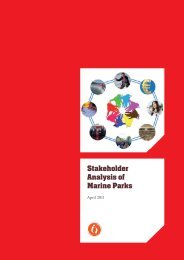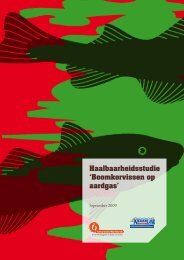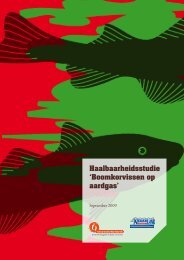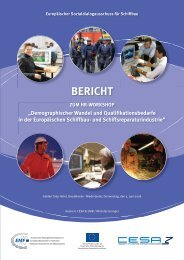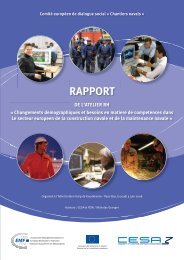Euromind (2009)
Creating an innovative European Open Maritime Industry through facilitating integration of standards into new business practices & services.
Creating an innovative European Open Maritime Industry through facilitating integration of standards into new business practices & services.
You also want an ePaper? Increase the reach of your titles
YUMPU automatically turns print PDFs into web optimized ePapers that Google loves.
European Commission<br />
Directorate-General for Enterprise & Industry<br />
Incidentally, it should be noted that the invention of human language is a similar solution to a similar problem<br />
where human beings, rather than applications or data structures, are trying to connect in an effective way. The<br />
English language is now fulfilling the role of the central language. Using English allows people of different linguistic<br />
backgrounds to communicate more or less effectively - just as a reference standard will function in digital<br />
information exchange.<br />
3.2 Promising standards for the shipbuilding industry<br />
To decide in EUROMIND about the most promising standards for the shipbuilding industry in the area of digital<br />
information exchange to be part of the neutral reference standard, promising standards were evaluated against<br />
the following requirements:<br />
• Is the standard open?<br />
• Is the standard universal? Is it independent, unambiguous and of high technical quality?<br />
• Has the standard a high degree of publicity, on either a national, European or global scale?<br />
• Is the standard compatible, platform independent?<br />
• Is the standard in use in shipbuilding or shipbuilding-like industries: on either a national, European or global<br />
basis?<br />
• What are the costs of the standard: license cost, installation cost, operation & maintenance cost?<br />
• Is the standard supported by (inter)national organisations and/or associations: size and number of the associations,<br />
political support?<br />
Foreword Introduction Issues faced by the<br />
European shipbuilding<br />
industry<br />
Inventory of standards<br />
supporting interoperability<br />
in shipbuilding<br />
Standards related<br />
to problem areas in<br />
shipbuilding<br />
The results of this evaluation, with the elements of successful communication in mind as described in chapter 1,<br />
are as follows:<br />
• Use standardised descriptions of components and attributes (maritime dictionary) based on classification. Most<br />
promising are the eCl@ss and ETIM standards from the electrotechnical contractor industry.<br />
• Use a standardised way to specify the structure of information (the type of data elements and their relations)<br />
i.e. the grammar. Most promising is the ISO15926 standard as used in the off-shore industry.<br />
• Use standardised file descriptions to exchange digital information between computer systems with different<br />
CAD software. Most promising is the IFC standard from the building and construction industry.<br />
Recommended<br />
good practices for<br />
shipbuilding<br />
Conclusions and<br />
recommendations<br />
4 of 5


